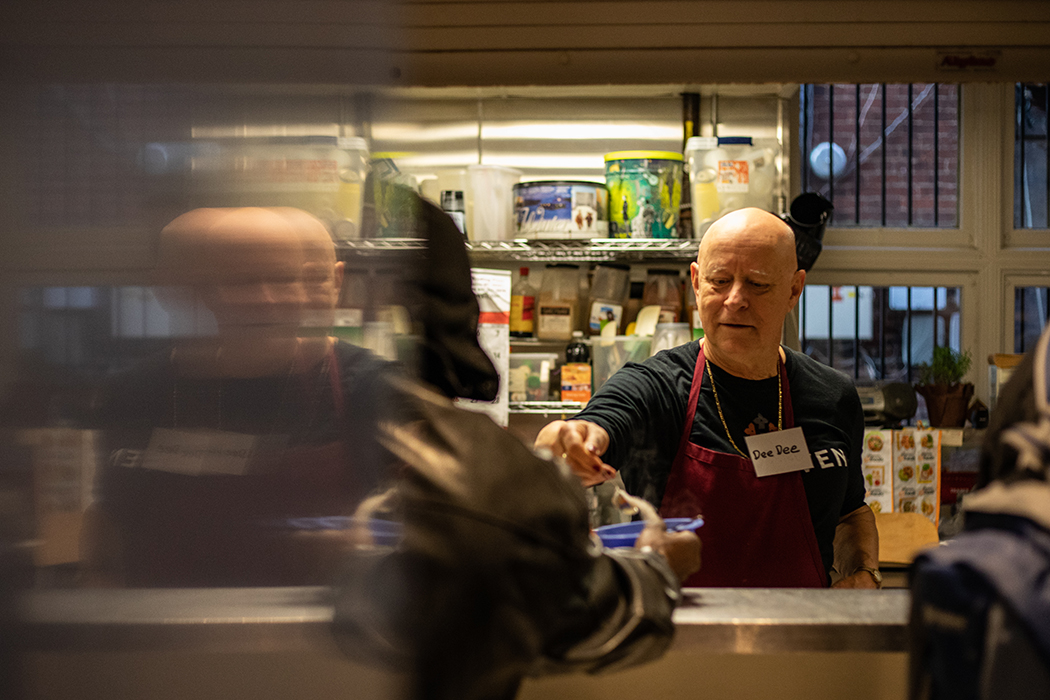Many know the Downtown Mall for its upscale restaurants, high-end boutiques, and luxury apartments. But tucked a few blocks away from the glitz and glamour lies a refuge for those left behind by our city’s prosperity.
Located in a 19th-century church on First and Market streets, The Haven has served people experiencing homelessness—as well as those with extremely low incomes—for over a decade. A low-barrier day shelter, it welcomes everyone who walks in, even if they are drunk or high. And it is open every single day of the year.
Early each morning, kitchen managers and trained volunteers cook up a fresh, hot breakfast for anyone who shows up. Afterward, guests can stop by the front desk, and get soap, shampoo, towels, razors, clothes, and other supplies before taking a shower. They are also able to do their laundry, pick up mail, make phone calls, and use the computer until the shelter closes in the evening.
“All of this is important to meet basic necessary needs,” says Executive Director Stephen Hitchcock. “But it’s all really with a view towards helping people get formally connected with our system of care.”
The Haven staff work one-on-one with guests to determine their needs, and connect them with a range of resources, including mental health services, substance abuse treatment, job training, and medical care.
Guests who need a place to sleep are referred to The Salvation Army emergency shelter, or People and Congregations Engaged in Ministry, which now runs a permanent shelter at the former Red Carpet Inn on Route 29. Through a combination of private and public funding, the shelter also offers several rental assistance programs, helping people experiencing homelessness—and those on the brink of homelessness—find and keep a permanent home.
“It’s a mix of basic resources for people who are literally homeless, and helping them move quickly and humanely through the system of care, and supporting them so that they stay housed,” says Hitchcock. “And also on the front hand, preventing folks from entering the system.”
In addition to these critical services, The Haven rents out its sanctuary for a variety of events, including meetings, weddings, and concerts.
“We certainly desire to be a community space,” says Hitchcock.
In fall of 2021, The Haven plans to reopen its lunch café, which is run by guests at the shelter. It also hopes to restart its community garden in the near future.
And as Charlottesville works on rewriting its zoning code—a product of the city’s racist history of segregation, redlining, and housing covenants—The Haven will continue to be a part of the fight for more affordable housing and a more inclusive, equitable future, Hitchcock says.
“The pandemic has shown so clearly that ending homelessness is a public health response, and that housing is health care. If you do not have a place to go, you cannot shelter in place,” he says. “We’re aware more acutely than ever that this is a basic need and human right.”
“It puts the question to this wonderful and very affluent community: How are we going to care for our most vulnerable?”
